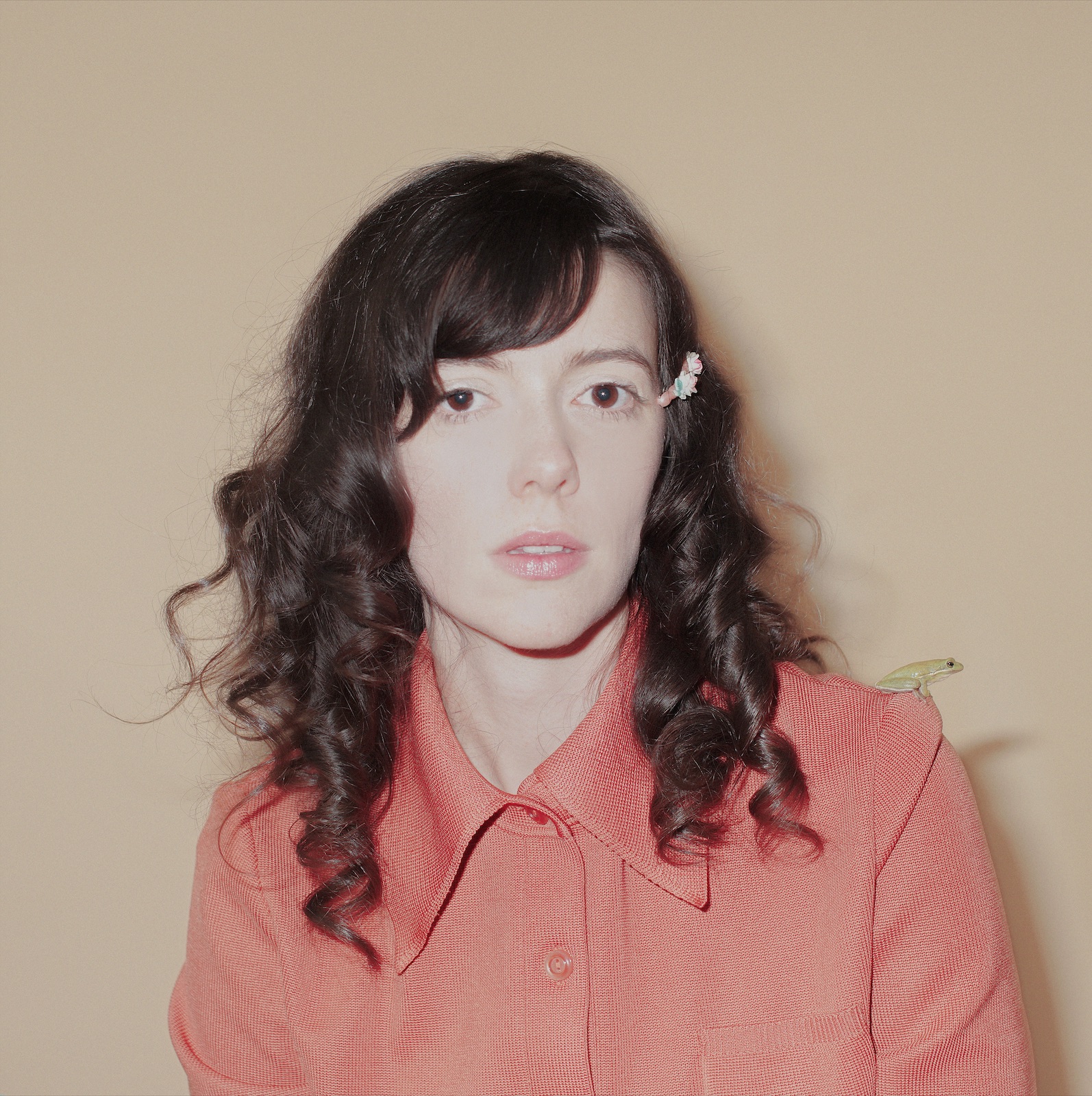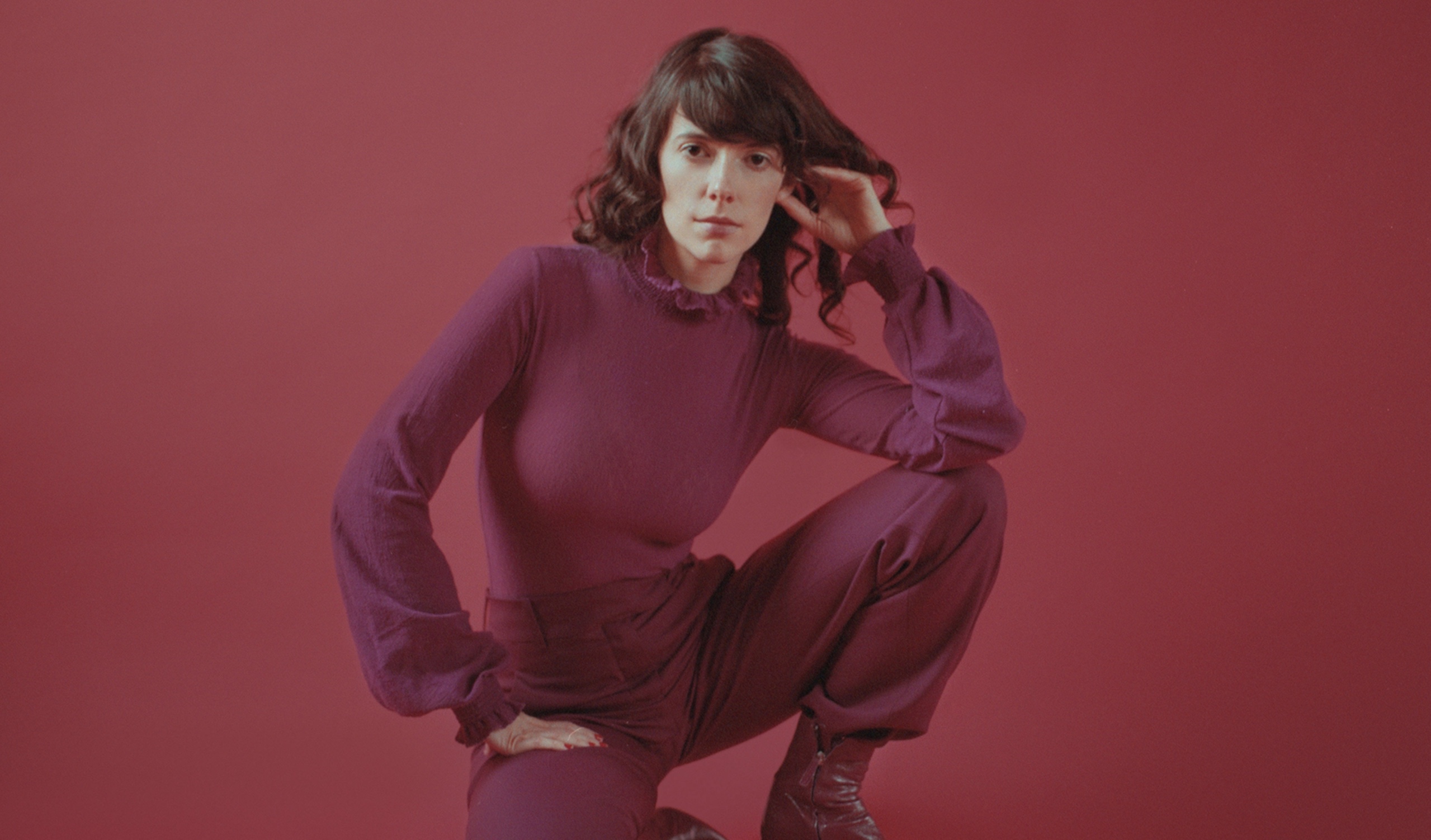Sitting behind the wheel of her silver Versa Hatchback, Natalie Prass is driving me around her home of Richmond, Virginia. As the city’s eclectic collection of commissioned murals drift by our windows, selections from Prass’s forthcoming sophomore album The Future and The Past play through the car stereo. Completed only a few weeks ago, the record blasts at peak volume, straining the small vehicle’s inadequate speaker system. Listening from the passenger seat, I can’t help but feel a bit displaced—not as a result of the bombarding decibel levels, but because of the very evident shift in who Prass is about to become.
“I hear a lot of frustration,” says Prass as she surveys the the road ahead of her. “But also a lot of courage.”
When Prass introduced herself to mass audiences (and was met with substantial critical acclaim) in 2015 on her self-titled debut, the album was a work invested in the emotions of personal heartache. Utilizing warm brass instrumentation and lilting string arrangements—all complementarily flourishing around Prass’s songcraft and airily affected vocals—the collection of songs felt simultaneously delicate and vibrant.
The songs on The Future and The Past do away with such nimble intimacy, revelling instead in a newfound boldness and authority. While Prass’s voice remains deceptively unassuming, the words behind it are now far less concerned with matters of the heart than with matters of life, and where Prass fits in what has become an increasingly uncertain socio-political landscape. Accompanied by a well of deep, danceable grooves that make heavy reference to the late ’70s and early ’80s funk of DeBarge, Chic, and Parliament, the gospel of The Clark Sisters, the neo soul of D’Angelo, and the empowered advocacy of Stevie Wonder, Nina Simone, and Marvin Gaye, Prass has made an album that imbues protest with celebration.
“I feel like it’s an, ‘OK, we have to keep going,’ kind of record,” she explains. “‘We’re going to get through this. Let’s dance. Let’s clap. Let’s all sing. Let’s just keep going. We’re living. Life is hard but it’s also really rewarding.’ I didn’t want it to be just about me. It felt like there was just too much going on for me to write a super personal this-is-my-experience-and-I’m-going-to-be-really-vague-about-it-so-you-can-maybe-relate kind of thing. No. I wanted to make good pop songs out of subjects that are a little harder to write about, or that people are scared to write about. I feel like a lot of people are writing political songs, but trying to make it into music that you would actually want to dance to and sing back is another challenge.”
_____
Earlier that afternoon, sitting in a former pharmacy–turned-downtown-restaurant, Prass admits that The Future and The Past wasn’t always intended to be so conscientiously charged. When she first started writing new songs last year, “It was basically turning into another heartbreak record.” Then, right before she was scheduled to begin recording in November, the results of the presidential election came in, hitting her in a way she wasn’t expecting. Though she doesn’t go into great specifics, she says, “The election brought back all of these ghosts from my past that I’ve just kind of pushed away. All of a sudden they started bubbling to the surface again. I started reevaluating things that I’ve experienced as a musician and as a woman—just thinking that it was normal—and realizing, ‘Oh, wait a second. That’s not normal.’ It all came crashing down on me at once.”
In one fell swoop, Prass decided to scrap her intended album. Keeping only a few holdover demos, she started over. “I was like, ‘I’m not releasing that record,’” she says. “There was no way. I needed to write more. So I wrote every day from January to early March. I wanted to give myself a chance to say something about everything. I would be so upset with myself if I just released some neutral record about love or whatever. That’s not what I need. That’s not what a lot of people need right now.”
“I would be so upset with myself if I just released some neutral record about love or whatever.”
Even before her inspirational U-turn, Prass once again sought out Spacebomb Records guru Matthew E. White to produce her album. White, who regards Prass as a sibling and lives just blocks away from her apartment, spent hours a day during this creative reset as a sounding board for Prass’s new direction and ideas. Looking back at his first collaboration with her, White admits that his own sense of musical style may have been more heavy-handed than it should have been.
This time around, he made a point to temper his influence. “My job on this record was to be as transparent as I could be and let her be Natalie,” says White, talking over the phone. After getting out of the way, White enthuses over the passion, directness, and clarity that Prass brought to the proceedings. “Natalie’s a very sweet person,” he says. “But there’s a lot of frustration, anger, and power in the record that comes from all the political and socio-political stuff, and hopefully that comes across. I think that’s very important to understanding her state of mind and the attitude she was asking of myself, the band, and the arrangements. All of that is tied together.”
 With her rewriting blitz completed, Prass retreated with White and several of Spacebomb’s veteran session players to a small studio just outside Richmond’s city limits called Montrose Recording. Whereas Prass’s debut relied on the use of strings and horns to fill in musical gaps, for The Future and The Past it was simply other voices coming in for support. “I needed songs that made me feel part of a movement,” she says. “There’s a lot of choir on it. It’s not like gospel choir, but a group of people singing in unison. I needed almost warrior songs to get me out of what I was feeling. It’s a very groove-heavy record. There’s a heavy, heavy pulse to a lot of the songs.”
With her rewriting blitz completed, Prass retreated with White and several of Spacebomb’s veteran session players to a small studio just outside Richmond’s city limits called Montrose Recording. Whereas Prass’s debut relied on the use of strings and horns to fill in musical gaps, for The Future and The Past it was simply other voices coming in for support. “I needed songs that made me feel part of a movement,” she says. “There’s a lot of choir on it. It’s not like gospel choir, but a group of people singing in unison. I needed almost warrior songs to get me out of what I was feeling. It’s a very groove-heavy record. There’s a heavy, heavy pulse to a lot of the songs.”
Vibe in place, The Future and The Past features tracks such as “Oh My,” which Prass says is about the daily frustrations of a non-stop media bombardment (“I feel insane if I keep up with the news—it makes me feel like I’m going out of my mind and I start to unravel”), and “Hot for the Mountain,” which Prass says “originally wasn’t going to be political.” Of the latter, she explains: “It was just going to be about outcasts and how outcasts are actually beautiful and strong people that have different ideas and don’t fit in, but can take over the world with their imaginative way of thinking. That’s still the case to me, but it’s also like, ‘We represent our country, too.’ In high school I was definitely the weird kid. I had four friends and we were all really weird, but we were inseparable—that typical kind of high school story. Any time I see young kids that are a little different I feel so near-and-dear to them. Those are my people.”
“You never quite know how you come off, but I do know I want to be somebody that doesn’t apologize anymore. I don’t want to be safe.”
But while there is indeed an inherent topical heaviness that calls for awareness and action throughout The Future and The Past, the lyrics don’t create villains or a sense of blame. “It’s a very positive record,” says Prass. “Even when I’m talking about serious things and serious issues, it sounds positive. And I really needed that. I needed to have a more upbeat record. I was thinking about the audience as well. I wanted to keep everything I believe in that makes me me—that satisfies my ears—but I also wanted people to put it on and enjoy it.”
Looking back at what she’s done and what she’s made, Prass says working on the record “was exciting and scary.” “It was like, ‘Shit, I’m kind of setting myself up and might be getting some backlash for some of these songs,’” she explains. “But at the same time they’re so important to me and I care about them so deeply… It’s worth the risk. This is how I feel. You never quite know how you come off, but I do know I want to be somebody that doesn’t apologize anymore. I don’t want to be safe.”
_____
Several months have passed and Prass is calling while heading north up the New Jersey Turnpike, on her way to New York City to make final decisions on the artwork for The Future and The Past. It’s taken her much longer than she would have liked to get to this point in the process. Shortly after finishing the album, behind-the-scenes drama led to a protracted departure from her label Startime International, delaying the release of the record as she searched for a new home and distributor. Now signed to ATO, Prass says the waiting hasn’t dampened the resolve she feels within her songs. It has, however, given her the benefit of a mental control valve. “I still feel as fired up as I did when I wrote them,” she confides. “I recently went on tour opening for Fleet Foxes and we were playing mostly new stuff. It’s no different from playing a breakup song or something. You have to tap into it. It’s really therapeutic.”
Finally heading into the release of the record—and the subsequent performances that will follow—Prass is getting better at finding pockets of good within what feels like a lot of bad. “There’s a lot of stuff that is still painful—painful for a lot of people,” she says. “I’ve accepted that our country is really fucked up. It has a lot of problems and is really divided. But I’ve made a pact with myself to always be engaged. And I will never stop growing and I will never stop learning about how things can be better. I do feel hopeful. I feel like for a long time I wasn’t smiling as much as I normally do; nothing was funny to me and everything was really dark. But now I feel like I’m starting to come out of that darkness.” FL







